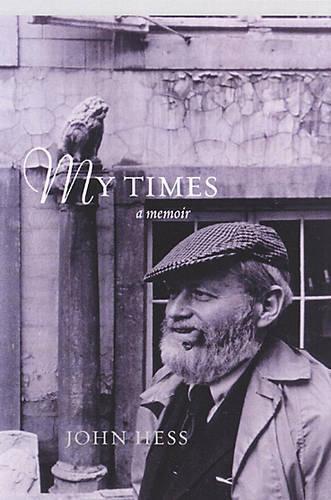
My Times: A Memoir of Dissent
(Hardback)
Publishing Details
My Times: A Memoir of Dissent
By (Author) John L. Hess
Seven Stories Press,U.S.
Seven Stories Press,U.S.
1st August 2011
United States
Classifications
General
Non Fiction
Media, entertainment, information and communication industries
Media studies
B
Physical Properties
Hardback
272
Width 148mm, Height 218mm, Spine 25mm
471g
Description
My Times is a critical look at The New York Times from the inside. John Hess worked at the paper for twenty-four years as an editor, rewrite man, foreign correspondent, investigative reporter, and food critic, from New York to Paris to the Middle East and back. In his tenure Hess rubbed shoulders and butted heads with some of the notable figures of journalism from the last fifty years, including Cyrus Sulzberger and his cousin Punch, A. M. Rosenthal, Seymour Hersh, Scotty Reston, and Homer Bigart.
But this isn't a lives of the saints; reporters, to Hess's observation, mostly churned out unambitious, conformist copy, and when they didn't, editors would "fix" it. He argues that the paper deliberately fudged its coverage of Vietnam at a crucial turn. He revisits the close association of the Sulzberger publishing family with the world leaders the newspaper purported to cover objectively. Later Hess shows that the Times was far better acquainted with the jet-set than with its neglected backyard; few at the paper in the 1970s seemed able to pick out the Bronx on a map. My Times is not without warmth for the Good Gray Lady. Hess praises individual reporters and editors, and notes that working for "the most influential paper in the world" gave him a platform to pursue various campaigns for justice, a few of which he recaps here: the journalistic prairie fire he set in connection with the New York State nursing home scandal; his expos of shenanigans at the Metropolitan Museum of Art; and his revelation of corruption in several administrations at City Hall.
Reviews
[Hess's] remembrances should be required reading for journalism students, as he covers such topics as the importance of presenting a balanced view, how qualified a reporter must be in order to write about a subject, protecting sources, using press credentials and more. 'News is, after all, what the public does not know,' he writes. This memoir, while imparting information, is at once authoritative and engaging, and deserves a place alongside books by Gelb and otherTimesluminaries. Publishers Weekly
John Hess's memoirs provide a rare, lively, highly informative picture of the internal workings of the world's most eminent and important newspaper, as it fills the space between advertisements that 'is charmingly known in the trade as the news hole,' so I learned. His rich and varied experience over many years also brings to life a good part of modern history, from a perspective that is hard to match. Noam Chomsky
I've always admired John Hess for his bone-deep honesty as a journalist. Somehow, I learned more of backstreets from him than I did of boulevards. Even when it came to covering dining, he could detect the hype from the true flavor. Studs Terkel
For most of his adult life John hess was an imperfect fear, even a monkey wrench, in the mighty crowd-control engine known asThe New York Times. Kurt Vonnegut
Author Bio
JOHN HESS is a veteran newspaperman and the author of Vanishing France, The Case for De Gaulle, The Grand Acquisitors, and, with his wife Karen, Taste of America. After leaving the Times Hess worked in television and radio journalism, wrote a nationally syndicated column, and freelanced for The Nation and Grand Street. Today he continues his role as media watchdog with a daily spot on WBAI's Pacifica, New York public radio. He is the holder of the Ordre National de Mrite and is the winner of the Meyer Berger Award of the Columbia School of Journalism.
